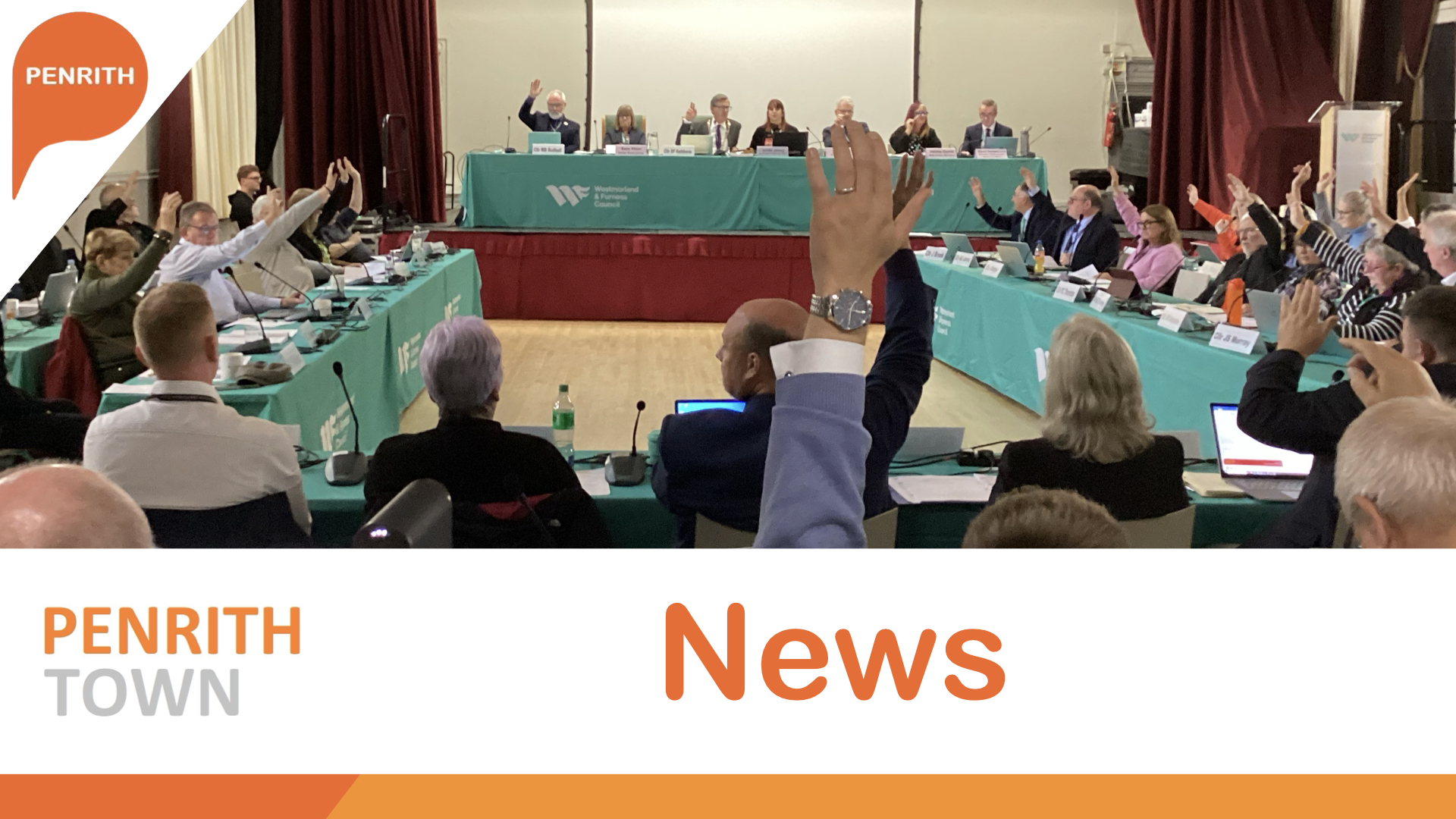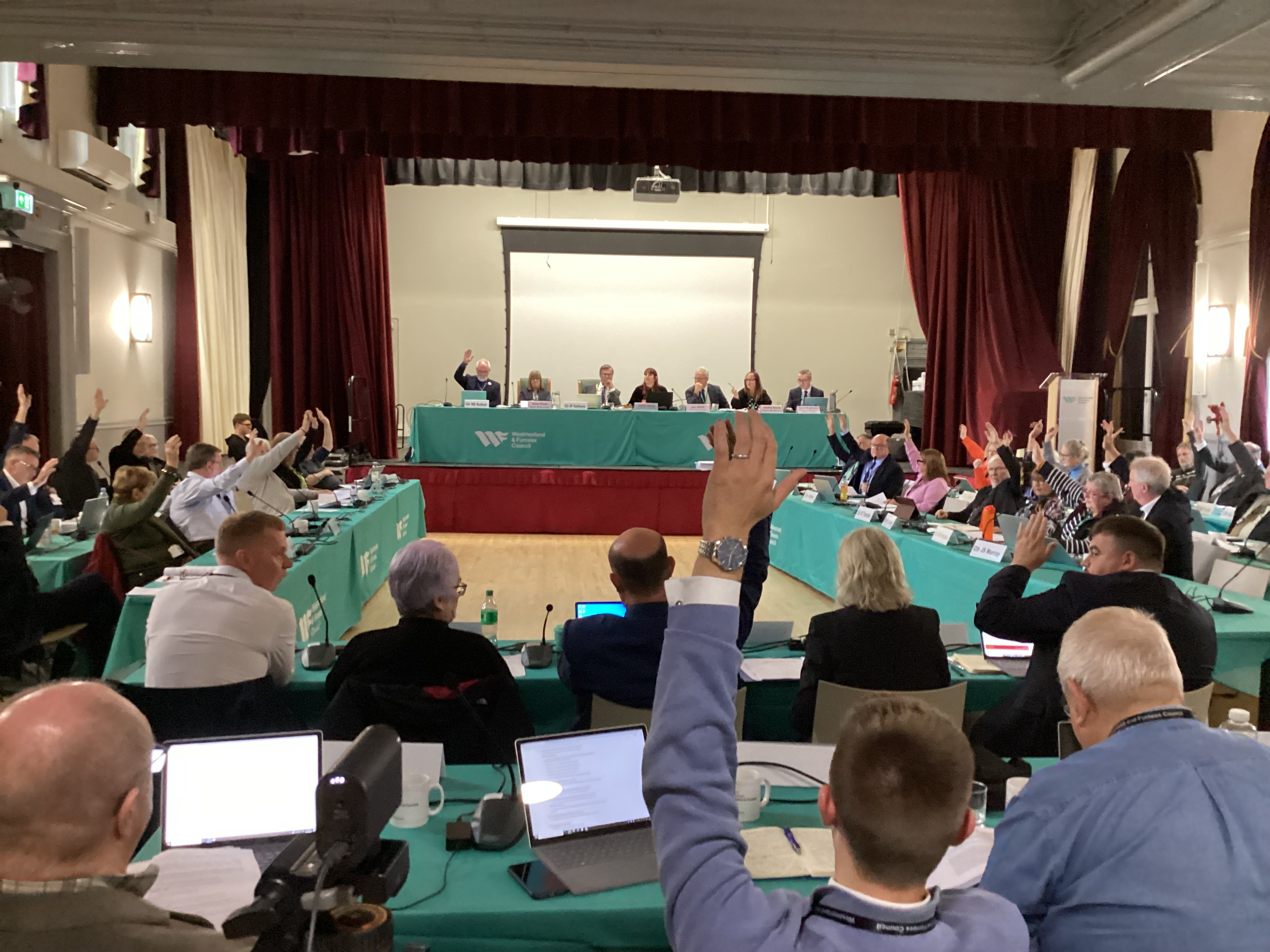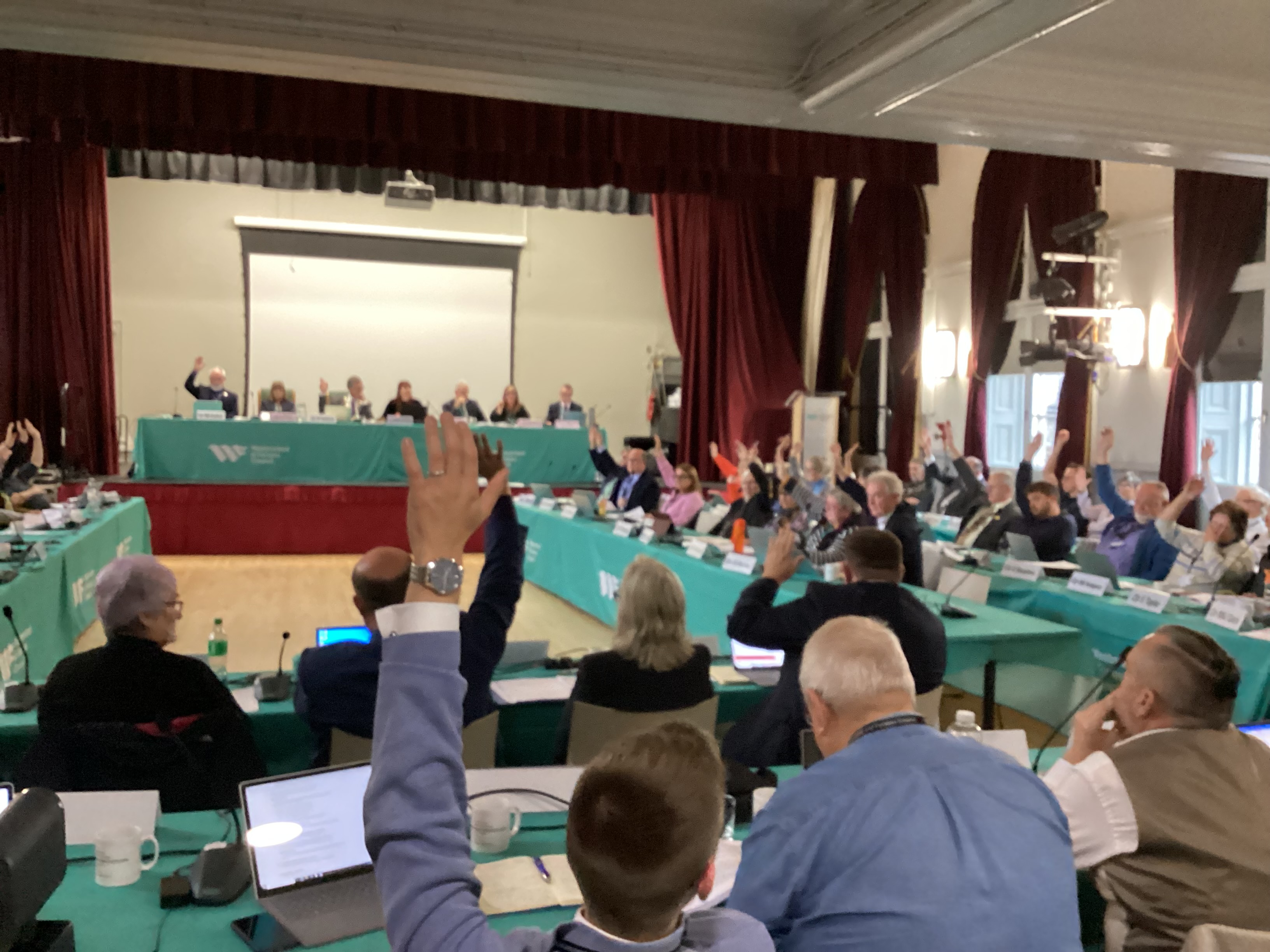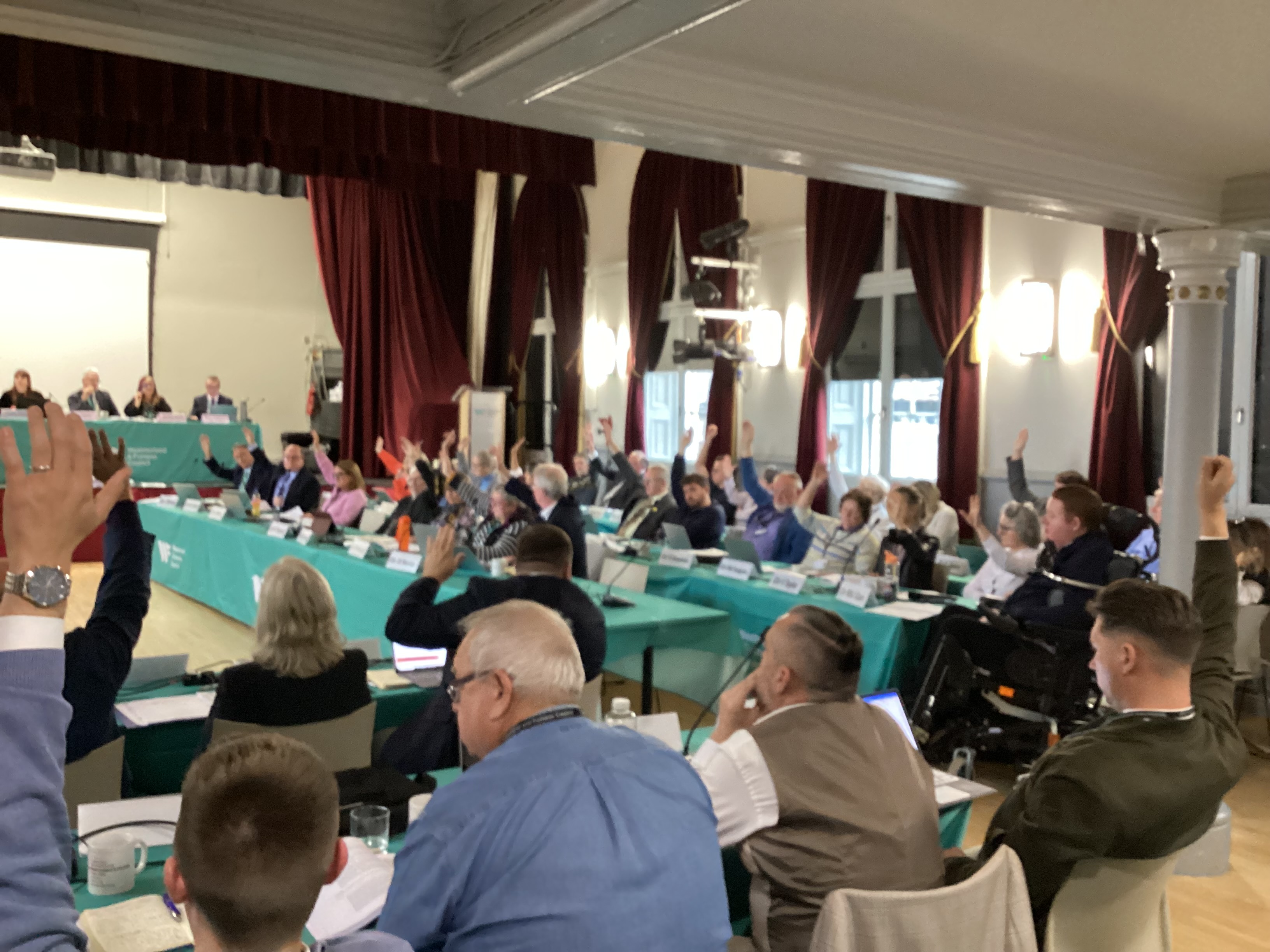
Councillors of Westmorland and Furness Council meeting in Kendal today debated whether the council should support government devolution proposals for Cumbria that would see a new combined authority created and a Cumbria Mayor elected in 2027.
The proposed combined authority would have a range of powers
and responsibilities not available to individual local authorities, covering
Cumbria-wide issues such as transport and local infrastructure, skills and
employment support, housing and strategic planning, economic development and
regeneration, the environment and climate change, health and wellbeing, public
service reform, and public safety.
Following a debate in which a wide range of views and
concerns were expressed by councillors — and after two councillors, including a
cabinet member, walked out of the meeting — the chair of the council, Cllr Doug
Rathbone (Lib Dem), asked members to vote on a motion proposed by council
leader Cllr Jonathan Brook (Lib Dem) and seconded by Cllr Tim Bloomer (Lib
Dem). It was Cllr Bloomer’s first speech at a full council meeting since his
election last year, following the council’s earlier disclosure that he had
failed to pay council tax.
Councillors were asked whether they endorsed the Cabinet’s
“minded to consent” decision made on 29 September 2025, with the final consent
decision due to be taken at a special Cabinet meeting next week.
All Liberal Democrat councillors — who last month selected former Conservative Party officer and a former county councillor, Libby Bateman as their mayoral candidate — along with Labour councillors present in the meeting along with some of the conservative councillors also raised their hands to voted in favour.
Cllr Thornton (Libdem) said his party had selected a very capable candidate they would be launching the campaigning for after the cabinet makes the final decision on devolution next week.



However, members of the Conservative group, who’s Cumbria members have
also last week selected Mike Starkie as their mayoral candidate, along with
Independent and Green Party councillors, voted against.
Cllr Carrick leader of the conservative group on the council warned that while devolution was a “golden opportunity”, councillors should not be “dazzled by increased powers and opportunities in isolation”.
Despite the opposition, a majority of Westmorland and Furness councillors voted to endorse the “minded to consent” position on devolution.
The council’s Cabinet will now make its final decision on 14
October — the same day Cumberland Council is due to announce its own decision.
If both councils give the go-ahead, the Cumbria Combined
Authority would be formally established early in 2026. Until the first mayoral
election in May 2027, the leadership of the new authority would be shared
between Westmorland and Furness Council and Cumberland Council.
Council leader Cllr Jonathan Brook said:
“It was good to hear such a wide range of views, not only on
the principles of devolving power away from Westminster, but also on some of
the specifics of how we could best make this work for Cumbria and our
residents.
Cabinet will reflect on this, and other feedback we have received from members,
stakeholders and residents before reaching a final decision next week.”
During the meeting, councillors received details of the
latest information on the powers, responsibilities and funding that would be
available to the new authority — including access to a Cumbrian Mayoral
Investment Fund of £333 million over 30 years, equating to around £11 million a
year. Several councillors raised concerns that, due to Cumbria’s relatively
small population, this would make it the smallest combined authority in
England, questioning its financial viability and the potential future cost to council
tax payers.
The Mayor would also have powers to levy a precept on
council tax bills. Cumberland Council has confirmed that both Cumberland and
Westmorland and Furness councils would be required to meet the costs incurred
by the Mayor in exercising their functions, except where the Mayor chooses to
fund them from other resources available to the Combined Authority.
The two unitary councils would have to agree on how those
costs are shared, with the default position based on the proportion of each
council’s population.
Subject to further government legislation, once a Mayor is
elected, the Cumbria Combined Authority is also expected to take on the powers
and functions of the Cumbria Police, Fire and Crime Commissioner.
 Then select "Add to Home Screen"
Then select "Add to Home Screen"